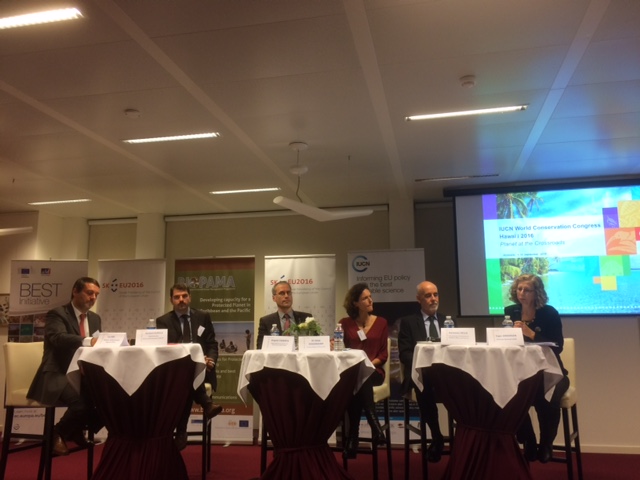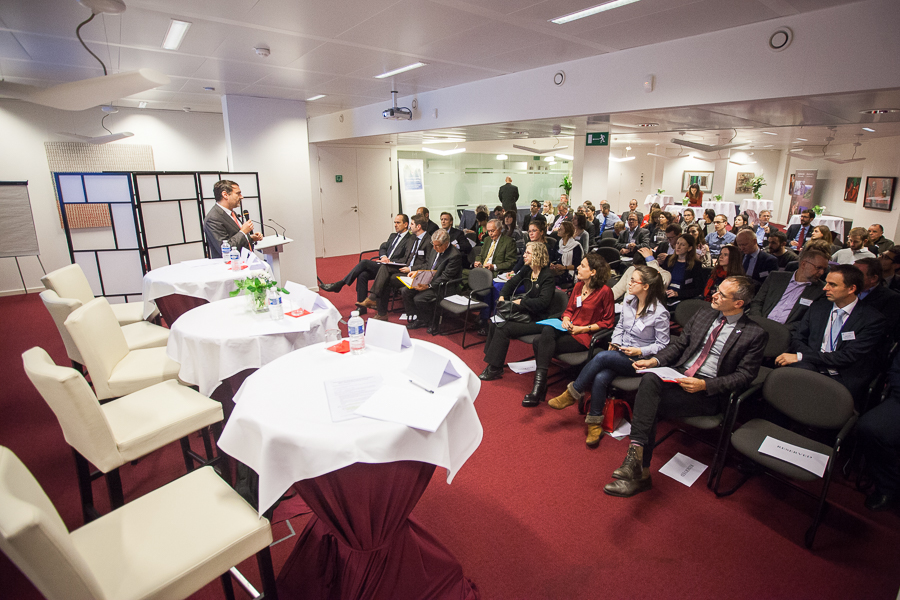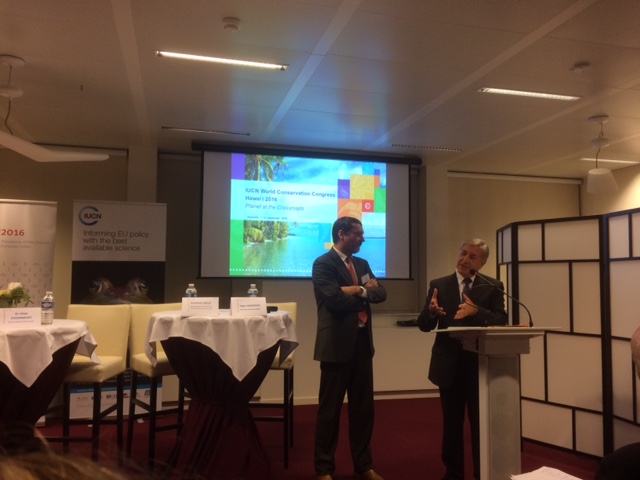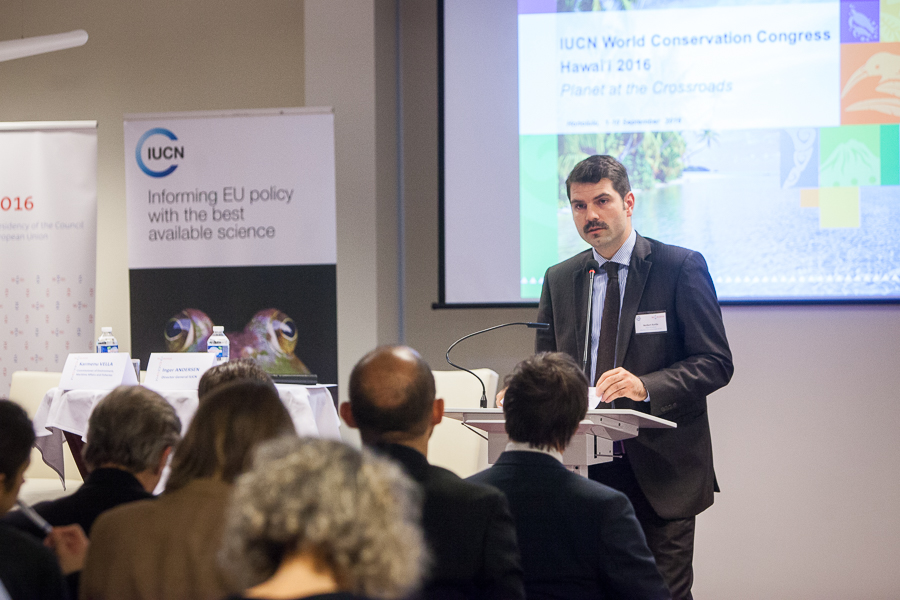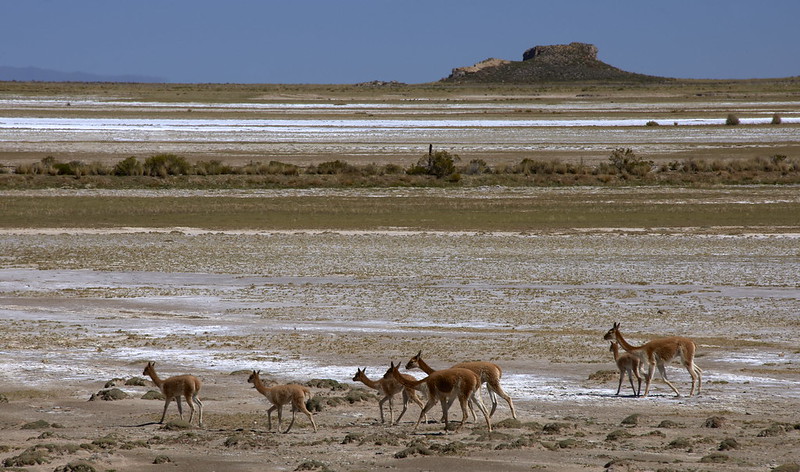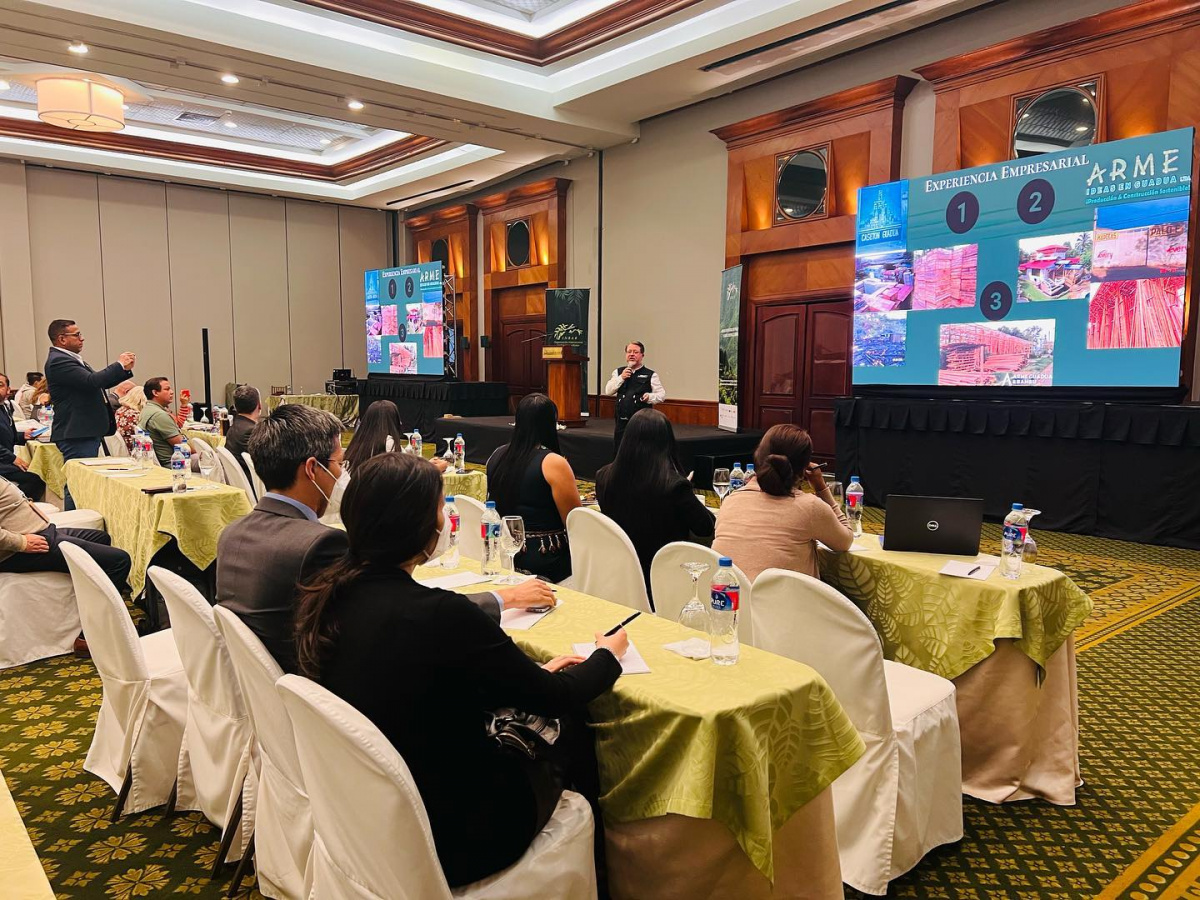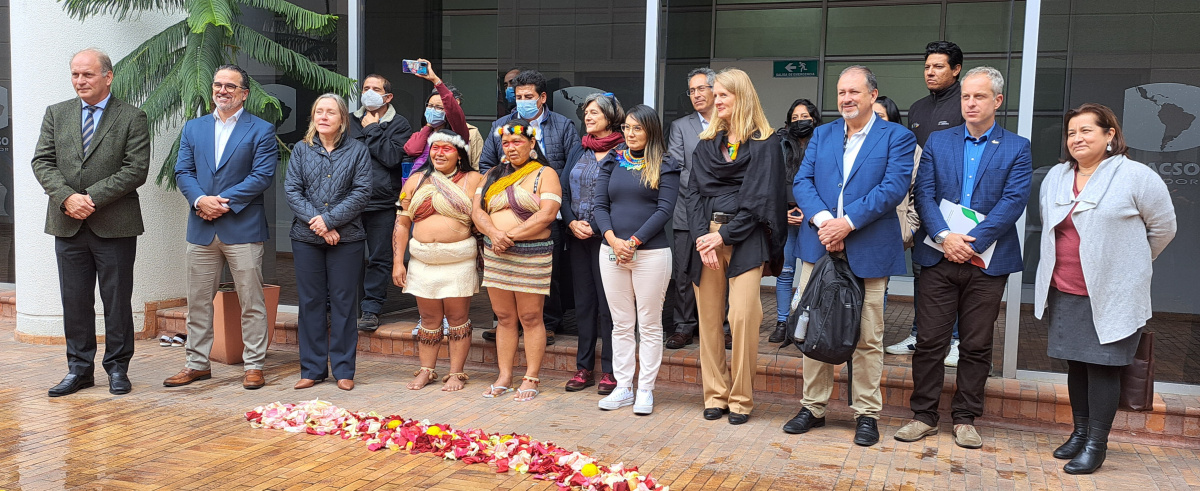The IUCN World Conservation Congress 2016 pushes forward European conservation action
The IUCN Brussels office and the Slovak EU Presidency organised on 7 November, the event, 'Outcomes of the IUCN World Conservation Congress 2016 - what do they mean for Europe?' which brought together a diverse panel of speakers to discuss the main outcomes of the IUCN Congress 2016 and how they can help drive environment action in the European Union.
Speakers included Norbert Kurilla, State Secretary Ministry of Environment of the Slovak Republic, Inger Andersen, Director General IUCN and Karmenu Vella, European Commissioner for Environment, Maritime Affairs and Fisheries. During a panel debate the speakers were joined by Angelo Caserta, Regional Director for Europe and Central Asia, Birdlife Europe, Dr Hilde Eggermont, European Regional IUCN Councillor and Humberto Delgado Rosa, Director for Natural Capital, DG Environment, European Commission for an exchange on how the EU can benefit from the momentum created by the IUCN World Conservation Congress 2016.
State Secretary, Norbert Kurilla opened the session expressing a desire to use the inspiration and outcomes from the IUCN Congress 2016 to focus on concrete actions that the European Union can take to help nature, biodiversity and landscape protection, while at the same time create opportunities to ensure sustainable economic development. "One cannot be solved without the other and we should always keep this in mind."
Inger Andersen, Director General of IUCN presented some of the highlights of IUCN Congress and what made it such an unprecedented event. She emphasised the desire to continue to build on the strong partnership already in place between the European Commission and IUCN. The IUCN Red List provides essential knowledge on the status of species in Europe and Nature-based Solutions are now central to Horizon 2020. At the same time The European Commission and IUCN are strongly upholding the biodiversity programme for the EU outermost regions and overseas countries and territories. IUCN's policy on Biodiversity Offsets, Key Biodiversity Areas, and Green List of Protected and Conserved Areas are also helpful elements for achieving the EU Biodiversity Targets. She added, "we want to continue to be the organisation that brings together the power of its members to provide that relevant, timely, science-based knowledge for sustainable development".
European Commissioner Vella reflected on how the outcomes of the IUCN Congress 2016 can push the EU environment conservation agenda forward. "The IUCN Congress successfully refocused the world’s attention on the importance of biodiversity and we have already made progress in addressing some of the challenges raised at Congress." The Commissioner also highlighted that recognising the economic benefits of biodiversity conservation is fundamental in reaching the 2020 EU Biodiversity Strategy. He also highlighted the alignment between IUCN’s work and the European Commission’s priorities; a focus on invasive alien species or ocean governance, as well as IUCN tools such as the Red List are already helping to set priorities and measure progress at European level. The Commissioner added that "IUCN's policies and actions help the EU and the EU's policies help IUCN. We need to act collectively if we are to reach these goals."
A panel discussion generated further exchange on the outcomes of the IUCN Congress 2016 and their significance in the European context. For Hilde Eggermont, European Regional IUCN Councillor, the further establishment of the Nature-based Solutions concept was one of the key outcomes of the IUCN Congress 2016 and an important tool to incorporate biodiversity considerations into business practices. Ms Eggermont welcomed the set-up of a global platform allowing for exchange of best practice between IUCN National and Regional Committees, and the need to continue in this direction. Echoing the words of Ms Andersen, she also acknowledged the momentum the IUCN Congress created in reconnecting people with nature, particularly through the #NatureForAll initiative.
Angelo Caserta reflected on the active role Birdlife played in the IUCN Congress and urged participants to work towards a “Fitness check” of the Common Agriculture Policy (CAP). The challenge of sustaining the global food supply by conserving nature is one of the Hawai'i Commitments which is directly linked to the CAP. "Agriculture is one of the main drivers of biodiversity loss around the world and has a huge impact on climate change and it is therefore important that we move to a new system that delivers on nature, delivers on the planet and delivers for the farmers as well,” commented Alberto Caserta.
The panel also discussed increasing efforts to better understand and conserve our global oceans that contain 90% or our world's biodiversity. Natural capital - the world's stocks of natural assets that provide us with services needed for our existence - also deserves to be better valued and can help further engage the public and private sectors to invest in nature.
Luc Bas, Director, IUCN European Regional Office summarised "the IUCN Congress 2016 set several clear objectives that are particularly pertinent to Europe. We look forward to work with our Members and partners in the EU to translate these outcomes into action guided by the IUCN European Work Programme 2017-2020."
